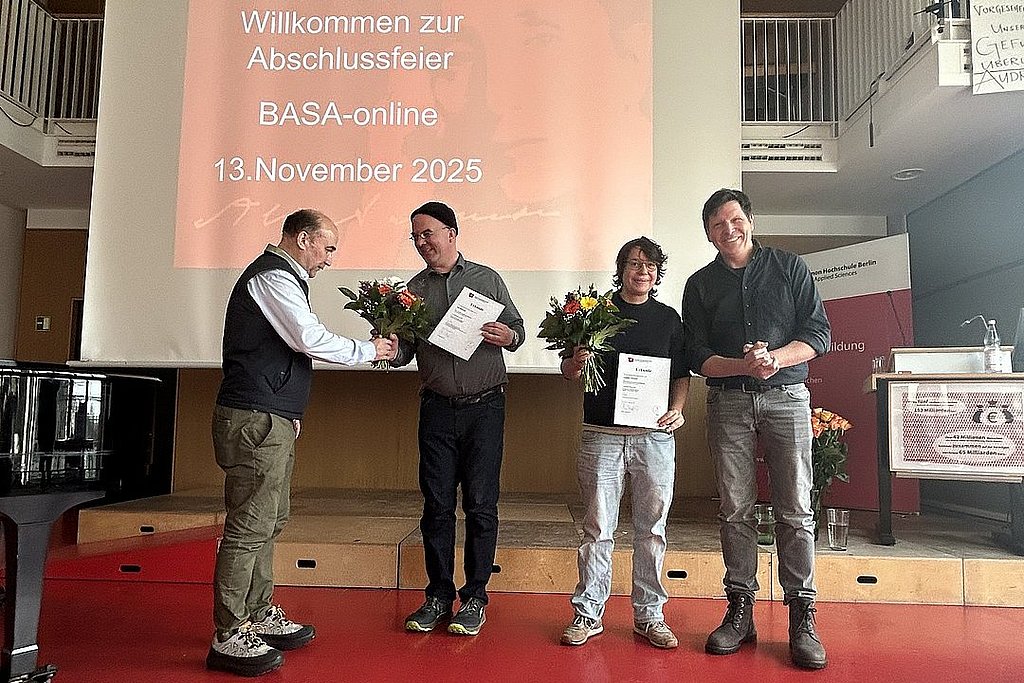On November 13, 2025, the graduates of the part-time Bachelor's degree program BASA-online celebrated their graduation at the Alice Salomon University of Applied Sciences Berlin. Two outstanding bachelor's theses, which are characterized by particular innovative strength and scientific relevance, were awarded prizes.
Graduate Annika Schauer was honored for her thesis "Violence in the Neighborhood", in which she examines causes, dynamics and social work approaches in the context of neighborhood conflicts. Graduate Joel Roerick was also honored for his bachelor's thesis "Between crisis and continuity - conceptual considerations on the recovery approach in integration assistance", which opens up new perspectives on the implementation of the recovery approach in social work. The recovery approach understands recovery as an individual process designed by those affected themselves, which focuses on hope, self-determination, participation and meaning - regardless of diagnosis or limitations.
In his inspiring speech entitled "Memory, not innovation", Joel Roerick emphasized the importance of historical responsibility for the profession. He posed the provocative question of how social work could have developed if the turning point of 1933 had not occurred, and linked these reflections to the basic ideas of the recovery approach.
Joel Roerick's full speech can be read in the alice online magazine.
About the BASA-online course
The BASA-online course is an undergraduate, online-based distance learning course in social work for professionals in Germany. The part-time course consistently relies on digital teaching and learning technologies and enables students to study largely flexibly in terms of time and place while working. The course promotes self-directed learning, reflection on one's own professional practice and the professional use of modern information and communication technology - key skills that are central to the working world of today and tomorrow.



